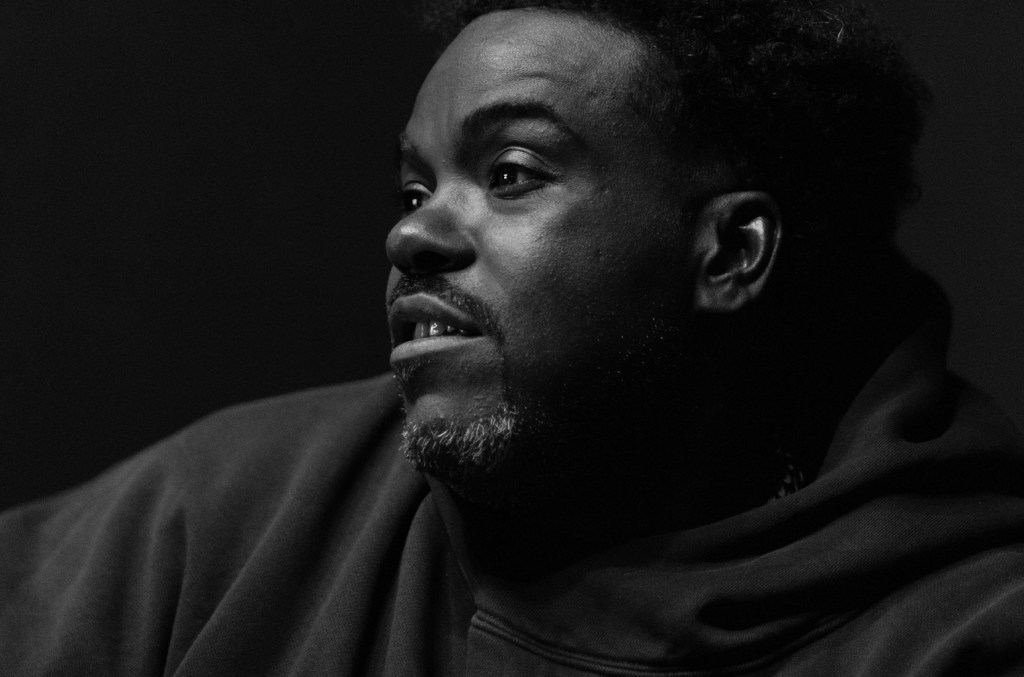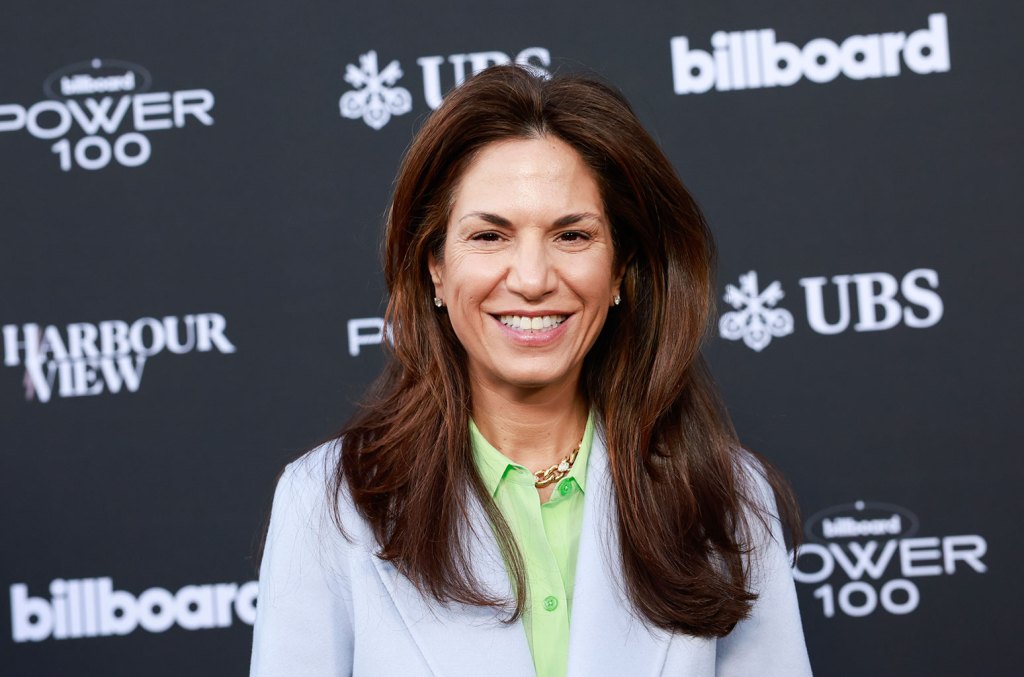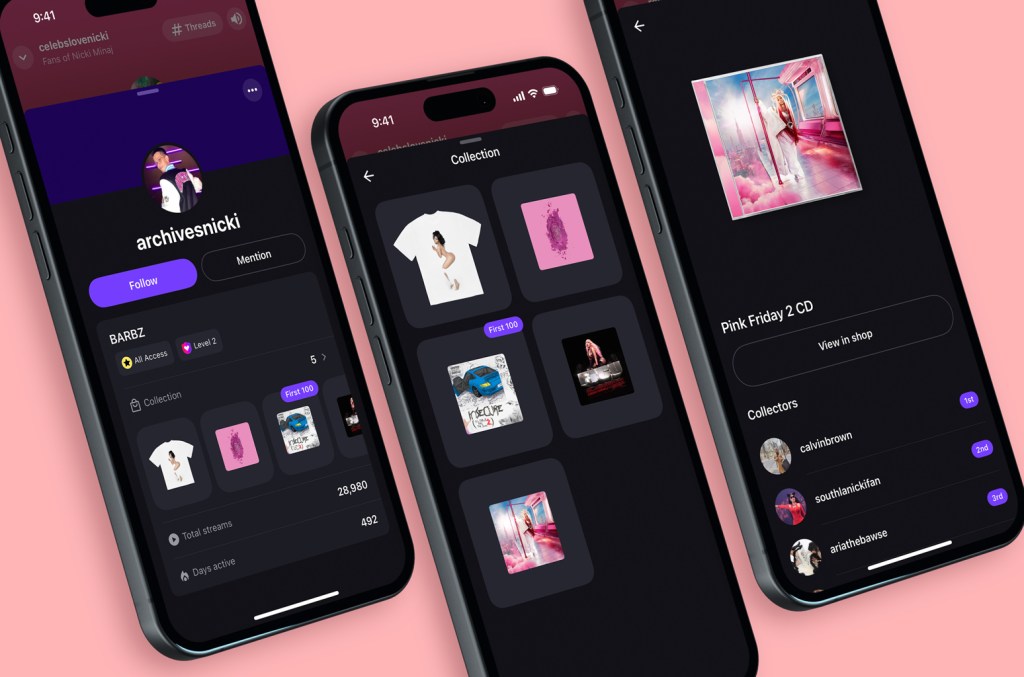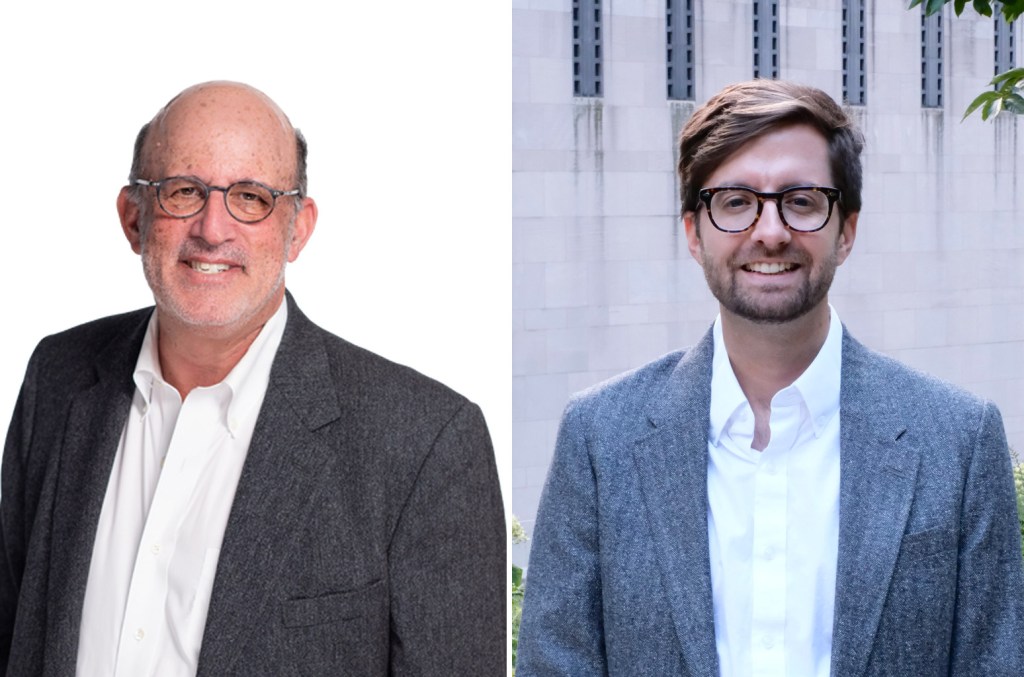Business News
Page: 15
Taylor Swift announced on Friday (May 30) she has regained ownership of her master recordings from Shamrock Capital, the private equity firm that purchased them from Scooter Braun’s Ithaca Holdings in late 2020. According to sources, Shamrock sold Swift’s catalog back to her for an amount relatively close to what they paid for it — which sources tell Billboard was around $360 million.
In a message on her website, Swift says: “All the times I was this close, reaching out for it, only for it to fall through. I almost stopped thinking it could ever happen after 20 years of having the carrot dangled and then yanked away. But that’s all in the past now… I really get to say these words: All of the music I’ve ever made… now belongs to me. All of my music videos. All the concert films. The album art and photography. The unreleased songs. The memories. The magic. The madness. Every single era. My entire life’s work.”
In her announcement, Swift expressed gratitude and praised Shamrock for how they handled the deal, noting they understood the deeply personal meaning behind the transaction. “My memories and my sweat and my handwriting and my decades of dreams,” she writes. “I am endlessly thankful. My first tattoo might just be a huge shamrock in the middle of my forehead.”
Trending on Billboard
The saga of Swift’s masters goes back to June 2019, when Ithaca purchased Big Machine Label Group, which owned the master recordings to Swift’s first six albums, for an estimated $300 million. Swift’s catalog was worth at least half of that amount, according to estimates at the time. Over the years, Swift has very publicly declared her displeasure with the shuffling around of her masters and, in 2019, began re-recording those Big Machine albums in order to restore control over her songs from a commercial standpoint.
Her re-recording journey began with Fearless (Taylor’s Version) in April 2021, followed by Red (Taylor’s Version) in November 2021. In 2023, she released Speak Now (Taylor’s Version) and 1989 (Taylor’s Version), each topping the Billboard 200 chart. Fans are still anticipating the re-recording of her self-titled debut and her final Big Machine LP, Reputation. Since leaving Big Machine in November 2018, she’s released five additional albums on Republic Records: Lover (2019), Folkore (2020), Evermore (2020), Midnights (2022) and The Tortured Poets Department (2024). She also embarked upon and completed her career-defining Eras Tour, which rewrote the rules of what a concert tour could be, and massively boosted streams and sales of her entire catalog, including the re-recordings.
Swift was not involved in Shamrock’s 2020 purchase of her music. “This was the second time my music had been sold without my knowledge,” she said at the time.
Shamrock’s 2020 statement about acquiring Swift’s catalog from Ithaca emphasized their admiration for her artistry and the value of her music. They described Swift as a “transcendent artist” with a “timeless catalog” and said their investment was driven by belief in the long-term potential of her work. While they had hoped to partner with her directly, they acknowledged and respected her decision not to be involved. Shamrock expressed appreciation for Swift’s professionalism and conveyed interest in collaborating with her in the future.
Although terms of the deal were not disclosed, given that sources close to the negotiations say Swift paid a price close to the $360-million price tag Shamrock paid back in 2021, that would imply Shamrock did not make much, if any, profit off the sale of the assets. However, the financial firm with ties to Disney still made a profit of around $100 million in total over the three plus years it owned the records. The six albums and two live albums that Swift recorded when she was signed to Big Machine generated roughly $60 million a year on average globally from 2022 to 2024, according to Billboard’s estimates based on Luminate data. Distribution, marketing and royalty payments to Swift likely consumed about 50% of that revenue, leaving Shamrock with an annual profit of around $30 million a year.
In 2023, Billboard reported that the re-recordings of Swift’s albums Fearless (Taylor’s Version) and Red (Taylor’s Version) were vastly out-streaming their originals since the new versions were released, with the new Fearless earning three times the equivalent album units as the original, and the new Red as much as 10 times the original.
As of May 22 according to Luminate, Speak Now (Taylor’s Version) has racked up 2.3 million equivalent album units to the original’s 8.6 million U.S. units, despite the latter having a more than 12 year head start; Red (Taylor’s Version) has accumulated 5.18 million equivalent album units to the original’s 9.16 million U.S. units, despite the latter having been released nearly 10 years prior to the re-recording; Fearless (Taylor’s Version) has accrued 3.0 million equivalent album units to the original’s 11.7 million U.S. units, the latter having had a 13-year head start; and 1989 (Taylor’s Version) has earned 4.87 million equivalent album units to the original’s 14.6 million, with a nine year gap in release dates.
Overall, Swift’s catalog has racked up 116.77 million equivalent album units in the United States over the years, according to Luminate, stretching back to her self-titled debut album in 2006. She has sold 54 million albums in the U.S. and generated 70.746 billion streams.
Read Taylor’s full message on reclaiming her masters:
Hi,
I’m trying to gather my thoughts into something coherent, but right now my mind is just a slideshow. A flashback sequence of all the times I daydreamed about, wished for, and pined away for a chance to get to tell you this news. All the times I was thiiiiiiiis close, reaching out for it, only for it to fall through. I almost stopped thinking it could ever happen, after 20 years of having the carrot dangled and then yanked away. But that’s all in the past now. I’ve been bursting into tears of joy at random intervals ever since I found out that this is really happening. I really get to say these words:
All of the music I’ve ever made… now belongs… to me.
And all my music videos.All the concert films.The album art and photography.The unreleased songs.The memories. The magic. The madness.Every single era.My entire life’s work.
To say this is my greatest dream come true is actually being pretty reserved about it. To my fans, you know how important this has been to me — so much so that I meticulously re-recorded and released four of my albums, calling them Taylor’s Version. The passionate support you showed those albums and the success story you turned The Eras Tour into is why I was able to buy back my music. I can’t thank you enough for helping to reunite me with this art that I have dedicated my life to, but have never owned until now.
All I’ve ever wanted was the opportunity to work hard enough to be able to one day purchase my music outright with no strings attached, no partnership, with full autonomy. I will be forever grateful to everyone at Shamrock Capital for being the first people to ever offer this to me. The way they’ve handled every interaction we’ve had has been honest, fair, and respectful. This was a business deal to them, but I really felt like they saw it for what it was to me: My memories and my sweat and my handwriting and my decades of dreams. I am endlessly thankful. My first tattoo might just be a huge shamrock in the middle of my forehead.
I know, I know. What about Rep TV? Full transparency: I haven’t even re-recorded a quarter of it. The Reputation album was so specific to that time in my life, and I kept hitting a stopping point when I tried to remake it. All that defiance, that longing to be understood while feeling purposely misunderstood, that desperate hope, that shame-born snarl and mischief. To be perfectly honest, it’s the one album in the first 6 that I thought couldn’t be improved upon by redoing it. Not the music, or photos, or videos. So I kept putting it off. There will be a time (if you’re into the idea) for the unreleased Vault tracks from that album to hatch. I’ve already completely re-recorded my entire debut album, and I really love how it sounds now. Those 2 albums can still have their moments to re-emerge when the time is right, if that would be something you guys would be excited about. But if it happens, it won’t be from a place of sadness and longing for what I wish I could have. It will just be a celebration now.
I’m extremely heartened by the conversations this saga has reignited within my industry among artists and fans. Every time a new artist tells me they negotiated to own their master recordings in their record contract because of this fight, I’m reminded of how important it was for all of this to happen. Thank you for being curious about something that used to be thought of as too industry-centric for broad discussion. You’ll never know how much it means to me that you cared. Every single bit of it counted and ended us up here.
Thanks to you and your goodwill, teamwork and encouragement, the best things that have ever been mine… finally actually are.
Elated and amazed,
Taylor
Additional reporting by Elizabeth Dilts Marshall and Dan Rys.
HarbourView Equity Partners has acquired part of Grammy Award-winning songwriter/producer Rodney “Darkchild” Jerkins‘ royalty catalog, the Newark, N.J.-based entertainment company said on Thursday (May 29). The deal was facilitated by Chapter Two, a Stockholm-based tech company that gathers royalty data for catalog buyers and sellers to forecast future income and speed up the due diligence […]
It’s no secret that artists are at the mercy of the algorithm when it comes to reaching fans online and through social media — but many acts report that new music and posts on platforms like Instagram and YouTube only reach a tiny fraction of their fan bases.
This issue is one experienced by Norwegian producer Alan Walker, whose manager, Gunnar Greve, tells Billboard that “when we release a new song, it reaches only 0.4 to 2% of our most active listeners. The same goes for YouTube — even fans who want to stay connected don’t always see the content. Editorial playlists and algorithmic feeds have started to replace organic discovery.”
This is despite the fact that Walker has roughly 10.4 million followers on Instagram alone and has clocked songs with millions, even billions, of streams.
Trending on Billboard
“When I released ‘Faded’ in 2015,” Walker says of his biggest hit, “streaming was still in its early days. There was a sense of excitement, a new world opening up. But in the years since, the pace of the industry has exploded. Today, the landscape is crowded, noisy, and often overwhelming even for those of us with big followings and strong communities.”
Like many other artists, Walker has observed that “the connection between artists and fans is starting to slip. Not because people care less, but because the systems we rely on don’t prioritize or find space for meaningful content. The pressure to chase trends or fit into playlist algorithms often takes the spotlight away from creativity, experimentation and emotional connection. The reasons most of us got into music in the first place.”
To cut through this noise, Walker and Greve are preparing to launch World of Walker, a custom app and online community tailored for Walker’s millions of global fans.
Launching on Aug. 8, World of Walker will offer exclusive immersive fan experiences, access to premium content (including Walker’s entire music and video catalogs), behind-the-scenes material, exclusive weekly livestreams, direct chats and more. Users can also participate in community-driven projects, events and discussions. The app is free to join, and pre-registration is available now.
The way Walker and Greve see it, World of Walker will provide greater opportunity than most social platforms for everyone involved. “For one, we can speak freely, without worrying about algorithms or chasing virality,” says Walker. “I have a global, diverse fanbase with different interests, and this app gives each person the chance to build their own World of Walker. They can find their people, join conversations that matter and stay connected to what truly resonates with them. We also get better insight into what fans actually want, which means we can shape the platform based on real feedback, not guesswork.”
Greve says the goal is reaching 500,000 users within the first year, “but the most important thing is for people to be active and engaged within the app.” In terms of monetization, he adds that the business model has two layers.
“First, just having a direct line of communication with fans without relying on third-party platforms. This is a success in itself. But in the app, we’ll have a mix of activity-based experiences and monetization through a small premium model and an in-app store with both physical and digital items. If we create enough engagement and value, profitability will follow.”
While Walker and Greve acknowledge that not every artist has the resources to build such a platform, they hope their project will help the industry evolve “in a way that puts fans and artists at the center. Not just as tools for big corporations,” says Greve.
Ahead of the app’s August launch, fans will get the opportunity to join the world of Walker in real life when he plays the final show of his two-year Walkerworld Tour at SummerStage in New York’s Central Park on Saturday (May 31.) Walker reports playing for more than 500,000 people during the tour and says he’ll also be releasing new music this summer.
World of Walker
Courtesy of World of Walker
World of Walker
Courtesy of World of Walker
Global success enjoyed by the likes of Central Cee, Charli xcx and Dua Lipa helped lift British music exports to a record high of £794 million ($1.72 billion) in 2024, according to new figures from the British Phonographic Industry (BPI).
The London-based trade body says last year’s total is the highest since it began analyzing labels’ overseas income in 2000, and that it’s more than triple the £243 million ($328 million) from 2013. The result also means that the U.K. remains the world’s second biggest exporter of music, making up around 8% to 9% of global streams, says the BPI.
Driving last year’s stats was a combination of established, globally successful British artists and a new generation of homegrown talent making waves on the world stage. In total, around 600 artists accumulated more than 100 million global streams throughout 2024, including high-charting releases from Central Cee, Charli xcx and Dua Lipa, alongside platinum singles for Myles Smith (“Stargazing”) and Good Neighbours (“Home”).
Trending on Billboard
Data by Luminate shows that the list of top revenue-generating artists also includes contemporary himakers Adele, Arctic Monkeys, Ed Sheeran, Harry Styles and Sam Smith, as well as icons who first rose to prominence in the 1970s, such as Queen and Elton John.
Consumption of British music increased in all but one of the main global regions in 2024, says BPI. This trend was led by an incrase of 29% in the Middle East and 12% in Africa. North America and Europe remained the biggest regions for export.
The BPI attributes many of these major gains to British record labels’ long-term investment in new talent and established acts. The organization reports that between 2020-2024, label businesses invested more than £2 billion ($2.7 billion) in artist A&R and marketing.
The rate of growth is declining, however. The BPI reports that income from the sales and streams of British music overseas increased by just 1.9% in 2024, compared to 7.6% in 2023 and 20% in 2022. In previous years, the consumption of British music globally was bolstered by extensive album and touring campaigns from superstars including Styles and Lewis Capaldi. Last year, however, no British artists ranked among the 20 most-streamed artists globally, according to the IFPI.
BPI chief executive Dr Jo Twist said in a statement: “It’s brilliant to see British artists, backed by their labels, continue to shine on the world stage, including a new generation of talent such as Charli XCX, Lola Young, and Myles Smith, among others. Their emergence shows we are on the cusp of future success.”
In her statement, Twist also stressed the importance of raising awareness around the government’s potential future approach to generative artificial intelligence training, as well as highlighting the need for further conversation around music education in the U.K.
Twist continued: “If we are to realise this potential in an increasingly competitive global market and keep British music a headline act, we need the right environment where the industry comes together to deliver growth to the UK. We have a Government that values not just the cultural power of British music but also the foundations of its success: creative arts education, labels that are supported and encouraged to invest in talent, successful programmes like the Music Export Growth Scheme, and a gold standard copyright framework that safeguards creativity and rewards human artistry.”
Reservoir Media wrapped up earnings season on Wednesday (May 28) by announcing that its revenue rose 10% to $41.4 million in the fiscal fourth quarter ended March 31. Adjusted earnings before interest, taxes, depreciation and amortization (EBITDA), a popular measure of profitability, was $18.2 million, up 14%.
“The music industry has a longstanding ability to weather broader macroeconomic headwinds as consumers believe in the value that music brings to their daily lives,” CEO Golnar Khosrowshahi said during the earnings call. “Our top-line growth is a testament to the demand and resiliency of our catalog.”
Music publishing revenue grew 6% to $27.9 million in the quarter. Digital, publishing’s largest revenue stream, rose 5% to $13.6 million. Sync revenue jumped 51% to $5.5 million due primarily to the timing of licenses. Performance revenue dropped 13% to $6.5 million and mechanical royalties fell 6% to $1.2 million.
Trending on Billboard
Recorded music revenue improved 7% to $12.0 million. Digital revenue jumped 19% to $8.8 million due mainly to price increases and subscriber growth at subscription platforms. Direct affiliations with collection societies helped neighboring rights rise 15% to $1.1 million. Physical sales fell 26% to $1.3 million due to a lighter release schedule. Sync revenue fell 29% to $700,000 due to the timing of licenses.
Full-year revenue of $158.7 million beat the high end of the guidance range of $155 million to $158 million. Adjusted EBITDA of $65.7 million also topped the high end of the guidance range of $64.5 million.
“Reservoir had a standout fiscal year, capitalizing on our opportunities to boost our organic revenue,” said CFO Jim Hindlmeyer. “Thanks to our value enhancement team, the deals we closed this year were substantial and delivered notable value to the company, and profitability was further aided by our internal efforts to control costs.”
In a busy year for signings, Reservoir Media inked songwriting deals with Snoop Dogg and Death Row Records, k.d. lang, Travis Heidelman and Aaron Zuckerman, among others. It also acquired the publishing catalog of Lebo M, Lastrada Entertainment, Big D Evans and Billy Strange, and purchased the produce royalties of Jack Douglas (Aerosmith, Cheap Trick).
While Reservoir Media has a roster of Western songwriters and recording artists, the company also focuses on emerging markets. This month, Reservoir Media announced its PopIndia subsidiary acquired the publishing and master rights of Musicraft Entertainment, which spans decades of Indian music. Khosrowshahi described the growth rate of India’s music business as “pretty significant given both the size of the population and the opportunity for the number of people to become streamers of music.”
Guidance for fiscal 2026 is revenue of $164 million to $169 million, which at the midpoint would result in 5% annual growth. Adjusted EBITDA guidance of $68 million to $72 million represents 7% growth at the midpoint.
Reservoir Media shares fell as much as 8.4% Wednesday morning but recovered to $7.69, down 1.4%, by early afternoon. The share price jumped 7.9% on Tuesday (May 27) on heavier than average trading volume.
Stationhead announced the launch of a new feature on Wednesday (May 28): Collections, which allows users to show off the physical and digital merchandise that they have bought through the fandom platform.
“We were inspired by what fans were already doing,” Ryan Star, founder and CEO of Stationhead, said in a statement. “They would post receipts to prove they were there first — that they didn’t just show up late to the party. We wanted to honor that devotion and make it more fun, meaningful, and permanent.”
Stationhead debuted in 2017 as an app that allowed Spotify subscribers to transform their playlists into personalized radio stations. “It turns everybody into a DJ, basically,” Troy Carter said at the time. “You can play music, you can go live, there’s a great flow and people are commenting — it’s almost as if you took Facebook Live and layered it onto the platform.” When the civilian-turned-DJ played music, every listener also streamed it on their Spotify account, so the streams counted towards the charts.
Trending on Billboard
In January 2023, the platform added “channels,” rooms dedicated to the fanbases of specific artists. A year later, when “superfan” became the buzzword of choice for the major labels, Stationhead was well positioned to take advantage of additional interest.
The company says it now has 20 million users, and half of them are between 18 and 25. It makes money primarily from taking a portion of downloads that are sold through the platform.
The rollout of Collections follows close on the heels of another new initiative, Stationhead Shop, which launched in March, allowing artists to sell their merch on the platform through an integration with Shopify.
The goal of Stationhead Shop, Star explained, was twofold: To “combine the excitement of the merch booth with the scale and social currency of a gaming platform,” while also providing artists with another way “to monetize and build direct relationships with their most passionate and loyal fans.”
After fans buy something, they now have the ability to flaunt their purchase. “In a world where your online identity matters, this is how fandom shows up,” Star added. “If Roblox and Fortnite taught a generation to express themselves through virtual skins and items, we see Stationhead Collections becoming that for music.”
Stockholm-born music library giant Epidemic Sound is launching a new remix series, called Extra Version, on Wednesday (May 28) with help from DJ/producer Honey Dijon. As part of Extra Version, Epidemic pays participating DJs and producers “five to six figure sums” to pick from the songs, stems, samples and loops in its catalog of over 250,000 pieces of IP — and remix them into something new.”
Epidemic then adds the results to its ever-growing catalog available for use by clients — like content creators, advertisers and brands looking for easy-to-clear songs to soundtrack videos — and distributes them to streaming services.
To kick it off, Honey Dijon flipped the Epidemic-owned song “Umbélé” by electronic artist Ooyy and Swedish Grammy-award winning performer Ebo Krdum. “Teaming up with Epidemic Sound was a vibe,” she said in a press release. “They’re shaking things up in the best way… It’s all about freedom, fun and keeping the groove 100%.” The company plans to also collaborate with Major Lazer co-founder Switch and rising Korean talent Jeonghyeon on future Extra Version editions.
Trending on Billboard
With this series, Epidemic Sound CEO/co-founder Oscar Höglund tells Billboard he wants to show off the “high quality” of Epidemic’s catalog, which he believes rivals the quality of traditional major label releases. “The art of consuming music is changing,” he says. “It’s going from being a spectator sport to being a participative one. People want to remix their favorite music, they want to collaborate, and they want to create.” Epidemic, he continues “is creating the opportunity for incredibly talented producers and remixers and DJs to collaborate [and remix] our catalog. And then, we will help them distribute their remixes around the globe [both to streaming services and to their platform which provides pre-cleared music to content creators] – and they’ll get paid well while doing it.”
In this interview, Höglund talks the ins and outs of Extra Version, the ways he is integrating AI remix features to “create more use cases for the same songs,” and why he feels the allegations that Epidemic Sound has filled Spotify mood playlists with “ghost artists” is “deeply offensive to the artist in question.”
Why are you launching Extra Version?
We’ve seen that even though culture is moving towards [more participation and remixing], creatives have held back from doing it because from a legal perspective, it’s very hard to get rights to music because of fractional ownership. Our catalog has been built up, for almost a decade and a half, around the premise of having all the rights in one place. There’s nothing fractional about it. We own all of our music, and we are more than happy to offer the catalog up to producers. We just want to do it in a way that works for the artists who originally made the music [that Epidemic now owns], the remixers, the creators and the platforms where this music will go live and proliferate.
What is the payment model for Extra Version participants, and how does that differ from how producers are typically paid for remixes?
What often ends up happening is that producers are asked to create a remix for an artist, and they don’t get paid much to do it. Rather, the logic has been, the more culturally relevant the artist in question is, the lower your compensation, because your payment is in the cultural value you receive as a remixer from being associated with the artist.
We took a contrarian view here. We’ve always prided ourselves on putting our money where our mouth is, so instead we’re paying much more handsomely up front [to Extra Version participants]. We can’t disclose exactly how much, but I would say between five and six figures [for each remix]. We’re paying a lot up front, and this is not recoupable. It’s not a loan. It’s something the producer gets to keep.
Next step is that we allow the remixer to choose whatever track they feel creatively inclined to use from our catalog. Allowing for choice is a huge part of this. Remixers don’t have to license anything or worry about different samples being unlicensed. We own everything in perpetuity, and it’s all made available to you to pick and choose from. Then we will distribute the song. Most remixers don’t get a commission, just a flat fee. With Extra Version, we want to cut the remixers and producers in.
With Extra Version, Epidemic is opening up its catalog for remixes, and also making stems available so producers can mix and match the building blocks of your catalog. Does Epidemic have the goal of taking on sample or beat marketplaces like Splice or is this just for Extra Version?
When we started commissioning songs, we always got stems for everything. It is important from a soundtracking perspective. To the second part, the way we think about Extra Version is that this is not the end. We’re definitely not stopping here — rather, we’re saying this is the first step in our endeavor to help more music creators sustain themselves and democratize access to music. The bigger picture here is we want to help soundtrack the entire creator economy, and as such, we need to unlock our music.
So it sounds like the future of Epidemic Sound is offering samples, beats, and individual elements of the songs in the catalog to everyone, not just fully formed songs?
Correct.
Do you see Extra Version as an ongoing series, or is it a limited run?
This is not a limited run series. It’s the starting point of ushering in a completely new paradigm, one which is much more centered around the remixing and collaborative nature of culture. This is something that we’re deeply committed to and we’re going to spend a lot of time experimenting and seeing how this space is going to evolve.
It feels like you’re moving in the opposite direction of major labels. Nowadays, competitive deals at majors regularly involve the artist getting their masters back eventually, but the advance the artist gets up front is recoupable. Meanwhile, Epidemic is asking for full ownership of an artist’s tracks, but you provide non-recoupable money up front for the song. What is your goal with this approach?
At our core, we’ve taken one fundamentally contrarian belief: if you’re an artist, common wisdom says you should hold on to all of your [intellectual property]. That’s the traditional music industry right now. We think, in order to provide wide distribution and to provide superior monetization, we need to own 100% of the copyright. If we can build a platform, like we have, where there’s one point of contact when you want to license the song, then we can indemnify our customers and allow them to use the songs across all platforms, in all jurisdictions, and in all different scenarios. This allows for us to create predictability with Epidemic, so we can also pay our artists more predictable fees, too.
How is Epidemic thinking about AI?
We think that AI is an incredible tool to help augment human creativity, but never replace it. We’ve so far found that there’s tremendous amounts of value in using AI to help both music creators and video creators. We can use AI during the recommendation phase. If you’re a video creator we can use advanced AI search tools to help recommend tracks.
The old paradigm was, if you found a track that you like, suddenly you had to spend hours trying to re-edit that track such that it perfectly fit the video story you’re trying to tell, often with huge challenges from a legal perspective. “Am I even allowed to change the composition of this track?” The answer is often no. We’ve now been able to use AI [so] that, if you are a content creator, and you find this one track that you want to use to soundtrack your video, you can now speed it up, slow it down, change it. You can cut it. You can edit it — not replace it. This helps create more use cases for the same songs. Where there might have previously been 10 content creators who can use your track, now with adaptation maybe 20 or 30 or 100 creators will use it. That means the track is going to get played more and it’s going to earn more royalties [on streaming services]. And so ultimately, the human who made that track is going to make much more money, because AI has augmented the use cases.
Point three is purely generative — we’ve launched a product called AI Voice. We’ve gone to human voice actors, and we’ve struck agreements with them such that we pay them up front, we train and we use their voice, and then we allow our customers to use their voices. Every time they do, there’s an additional royalty so that the voice artists make additional money. We also put their personal emails out there in case content creators want to work directly with them. So suddenly, even when we go into the generative world of voice, we’re seeing that voice actors get used more, get more work, and get paid.
There have been allegations dating back to 2016 that Epidemic Sound has a deal of some kind with Spotify to fill some Spotify playlists with royalty-free music. It has been highly criticized. Can you explain what that arrangement is, if there is one?
I’d be happy to. Epidemic parallel publishes all of its music to all of the major DSPs around the entire world. We do that for a couple of different reasons, but the primary reason is it’s in our artists’ best interest, because we realized early on there was a Stranger Things, Kate Bush effect, meaning when Kate Bush’s track was used in Stranger Things, there was a massive surge in that song on streaming platforms around the world. We realized early on that that happens [when content creators use our songs].
There was also an adjacent trend, which we also tapped into very early, on streaming platforms in general — Spotify being one of them — that there was much more lean-back listening going on. The role of the record [or album] as the [driver] for music consumption started to diminish. More and more, [people were listening to] standalone tracks, but then ultimately playlists started to proliferate and come into their own.
Many of [the playlists] are hits-oriented, but there’s a huge proportion of playlists which are more functionally oriented. We do incredibly well across all the different playlists where people are looking to get to a specific theme or in a specific emotion. There’s music for sleeping, for concentrating, for studying, for getting ready, for meditating or for walking your dogs. Because what we do at our core is soundtracking, it turns out we were really, really good at [those playlists]. And while other people were trying to get into the bigger playlists to create the hits of tomorrow, we just kept doing the thing that we do really well. There was huge demand across all different DSPs, so we started to grow. And we became very, very significant and very, very successful.
Do you feel that it harms non-Epidemic artists in these genres to be competing for spots on mood-based playlists with your music?
No. If anything, the contrary: I think the old articles about Epidemic artists are deeply unfair. There was speculation: “Who are these artists? Do they even exist?” They are super talented artists in their own right. I took issue very much with that.
Various writers have referred to your music that is on Spotify playlists as “ghost artists” or fake artists.” How do you feel about those titles?
I think it’s deeply offensive for the artist in question. If you are an actor, you can play multiple different roles because you portray many different characters. That’s second nature. Artists, like actors, have the right to express their creativity in a multitude of different ways. It’s always them who determines if they want to publish their music under one name or not. Odds are that their fans might think they are all over the place, so quite often what we see happen is that artists have one brand for a certain genre of music, and different brand for another kind. If you look at Elton John, Madonna they [use] aliases. I seriously doubt that Madonna and Elton John would like to be called fake artists or ghost artists. That’s them creatively expressing through a different persona.
Citrin Cooperman estimates a record-setting number of music catalogs with a combined value of around $20 billion were floated to investors last year. While economic and political uncertainty so far in 2025 has sent stocks and global trade on a roller coaster, the head of Citrin Cooperman’s music and entertainment valuation practice Barry Massarsky says his team has never been busier.
Massarsky and partner Jake DeVries reviewed over 550 music catalogs with a combined asset value of $10.7 billion last year, a figure that Massarsky says “demonstrates very loudly how much volume is in the marketplace.”
“Yesterday, I was dealing with a seminal holiday music catalog, a well-known classical music artist, this group from Nigeria, and film and television,” Massarsky told Billboard during a conversation in mid-April at Citrin Cooperman’s offices in Rockefeller Center.
Trending on Billboard
Over his two-plus decades in practice, Massarsky’s best known clients have been Primary Wave, Round Hill Music, Hipgnosis, Reservoir and nearly every major music company. Since joining Citrin in 2021, their business expanded to offer entertainment tax advice, audit inspection, transaction strategy, and recently, to include a valuation team focused Hollywood actors’ and directors’ participation rights.
Massarsky and DeVries shared their observations about the current market value being placed on pop and hip-hop music, the average size of a catalog they valued in 2024—it’s smaller than you might think—and the ongoing popularity of music from the 1980s.
Here are some highlights from our conversation:
Hip-hop and pop music catalogs 10 years old and older fetch the highest valuation multiples, a trend that’s held steady since 2022.
Pop music and hip-hop catalogs of songs released more than a decade ago received valuation multiples—a measure of future growth—of 17.6 and 17.4 respectively on average from 2022-2024. Latin catalogs had an average multiple of 17.1, country catalogs had 16.8 average multiple and rock music averaged a 16.7 multiple.
Some of the biggest hip-hop catalog deals of recent years include Primary Wave’s $200 million acquisition of Notorious B.I.G.’s works, Shamrock Holdings’ purchase of Dr. Dre’s catalog along with other rights for around $200 million and Opus Music Group’s acquisition of Juice WRLD’s catalog for $115 million, according to Billboard estimates.
Those deals aside, the priciest catalogs have been mostly older vintage pop and rock music from artists like Queen, Michael Jackson, Bruce Springsteen, Pink Floyd and Bob Dylan.
Massarsky says hip-hop catalogs are now in-demand because “it is one of the most favored formats for continued streaming activity” and the revenue it generates from publishing royalties has risen significantly due to higher payout rates coming from streaming platforms in recent years.
DeVries says hip-hop music is also over-indexed, or consumed at a proportionately higher rate, on Apple Music, which adds to its value because Apple Music’s payout rates are high among streaming platforms since it does not offer any free plans.
“If there previously was a concern about whether Hip-hop had legs to grow and whether the music would have certain constancy of staying power,” Massarsky says, “the data suggests the answer is yes.”
While deals like Sony Music’s $1.27 billion acquisition of Queen’s catalog and naming rights get the most attention, Massarsky and DeVries say the average valuation for a catalog they worked on in 2024 was $19 million.
“[That] illustrates how much volume there is outside of what garners the most attention,” DeVries says.
Catalogs that included master recording and publishing rights received the highest multiples because often those catalogs are also near the end of certain contracts, and a new buyer could have the opportunity to assume administration or ownership of certain other rights.
Music from the 1980s performs better on streaming platforms than music from the 1970s, 1990s or 2000s.
Music released in the 1980s saw a nearly 20% compound annual growth rate (CAGR) in cash flows from U.S. streams for the years 2022 to 2024, compared to a 17.9% rate for the 1970s, 14.9% for the 1990s and 14% for music of the 2000s.
Massarsky thinks the strength of older music comes, in part, from adult listeners who started Spotify subscriptions during the pandemic.
“An older generation turned to streaming services during that period, and I think they stayed,” Massarsky says, adding the popularity of 1980s music has not resulted in lower streaming revenue for music from other decades.
“It has not crowded out newer music. It’s just added more value to the supply of music on streaming.”
Although Citrin’s team is not involved in catalog sales directly, the value they give a catalogs is usually close to the price an asset sells for. In other words, despite occasionally eye-popping sums, buyers rarely overpay.
Citrin’s valuations are often commissioned by rights holders for use by commercial banks to secure financing or other bank services. The banks test Citrin’s valuations to determine the difference between the revenue an asset actually generated and how much Citrin estimated it might generate. Massarsky says Citrin’s estimates always fall within the bank’s acceptable range of plus or minus 5%.
“For me, that implies that our forecasts are fairly accurate, and also implies, I think, that what these funds are transacting at is credible,” he says.
DeVries says that they might not know if there is a gulf between Citrin’s valuation and ultimately where the catalog transacts. But if a buyer overpays, it is likely because of “some qualitative, intangible” benefit, like making a splash for a newcomer to the market.
Buyers and sellers of catalogs are not showing signs of holding their breath.
If there hadn’t been catalogs that were re-sold in 2024—such as Blackstone buying out shareholders of Hipngosis Songs Fund Limited or Opus Group selling their catalog to Litmus—”it might be a different story this year,” DeVries says. But investor demand is robust, Citrin says.
“The resiliency of music as an asset class is why there haven’t been any significant disruptions,” DeVries says. “We had the experience of the COVID-19 pandemic, and oddly enough music thrived. Now with questions around tariffs, music is a protected vehicle from tariffs. When these large hurdles are thrown at music, it has continued to prove itself as essentially unperturbed.”
HYBE has disclosed the sale of its remaining 9.38% stake in rival SM Entertainment to Tencent Music Entertainment (TME), a subsidiary of Chinese tech giant Tencent. The deal, valued at approximately 243.35 billion South Korean won (approximately $177 million), involves the transfer of 2.21 million shares at 110,000 won per share and is set to close on May 30, according to a new regulatory filing.
This transaction marks HYBE’s complete exit from SM Entertainment, a powerhouse K-pop agency behind acts like EXO, aespa and NCT 127.
Trending on Billboard
HYBE initially entered SME in 2023, acquiring a 14.8% stake from founder Lee Soo Man and later raising its holding to 15.78% through a failed takeover bid, ultimately losing out to Kakao, which now holds a 40.28% stake. After reducing its stake to 9.38% in May 2024, HYBE has now sold its remaining shares.
Why get out of the SME business? HYBE said on Tuesday that it has “divested noncore assets as part of a choice and concentration strategy” and that “secured funds will be used to secure future growth engines.”
TME’s acquisition makes it the second-largest shareholder in SME, behind Kakao. It operates leading Chinese music platforms such as QQ Music and Kugou Music and has existing ties to K-pop through partnerships with HYBE and others. TME also holds minority stakes in YG Entertainment and Kakao Entertainment, signaling its broader strategy to expand influence in the global K-pop landscape.
For SME, the deal could strengthen its reach in the Chinese market and enhance its digital distribution, artist promotion and content collaborations through Tencent’s various platforms. SME is coming off a strong Q1, with revenue up 5.2% year-over-year, driven by strong growth in concerts and recorded music. Concert revenue surged 58% thanks to tours by NCT 127, aespa and others, and recorded music rose 23.1%, led by Hearts2Hearts’ debut.
The acquisition reflects TME’s ongoing investment in Korean assets and sets the stage for deeper cross-border collaboration in music and media. It also marks the latest shift in the balance of power within the K-pop industry, highlighting the growing influence of Chinese tech giants in South Korea’s entertainment sector.
Meanwhile, HYBE is repositioning itself for future expansion, using the proceeds from this sale to invest in new ventures. The company continues to grow globally with its roster of artists including BTS, NewJeans and SEVENTEEN, and remains focused on developing next-gen platforms and talent. In the first quarter, HYBE reported strong financial performance despite a 5.9% drop in recorded music revenue. Total revenue rose 38.7% year-over-year, driven by a 252% surge in concert revenue and a 75.2% increase in merch and licensing. HYBE also expanded into Latin America with festivals and a music competition show.
Laura Segura, executive director of MusiCares, has departed the organization after five years as executive director, according to an email sent to staff by Harvey Mason Jr., CEO of the Recording Academy and MusiCares.
The memo announced a “key leadership transition” heading into Memorial Day weekend, revealing that Segura is “no longer with MusiCares” — and that Theresa Wolters, who’s been serving as MusiCares’ head of health and human services, “is stepping into the role of interim executive director.”
No reason or details regarding Segura’s departure were given. Billboard reached out to the Recording Academy and MusiCares on Saturday (May 24) for comment.
Trending on Billboard
The leadership and staff directory on MusiCares’ website no longer includes Segura’s name and lists Wolters as interim executive director.
Segura was named executive director at MusiCares in 2020, after serving as vp of membership and industry relations at the Recording Academy.
She was honored at Billboard‘s Women in Music, which recognizes top executives in the industry, in both 2022 and 2023.
Segura and Wolters, who is now MusiCares’ interim executive director, co-penned a guest column for Billboard, “Health Insurance Isn’t Enough — Music Also Needs a Financial Safety Net,” published in March.
MusiCares, founded by the Recording Academy in 1989, provides a safety net of critical health and welfare services to the music community. The U.S. based, independent 501(c)(3) charity offers financial grant programs, support resources and crisis relief.
Earlier this month, MusiCares reported that nearly $10 million raised for Los Angeles wildfire relief efforts during the 2025 Grammy Awards was distributed to recipients across the region. As of May 2, $6,125,000 was disbursed to more than 3,100 music professionals across L.A, and $3,969,005 had been directed to the community-based organizations California Community Foundation, Direct Relief and Pasadena Community Foundation.
An additional $16 million was raised by MusiCares and the Recording Academy during Grammy weekend with the MusiCares Fire Relief campaign and its annual Persons of the Year gala. $6 million of that amount was allocated to longterm fire relief efforts, and $10 million will go toward the organization’s year-round mission delivery.
“What moved us most in the days following the Grammy telecast wasn’t just the scale of support, it was the spirit behind it, Segura said in a statement on May 2. “Thousands of people gave what they could, and together, their generosity became a lifeline for those in crisis, which reached far beyond our industry. That’s why we partnered with trusted community organizations who are helping Angelenos across the region access the care, resources and support they need to rebuild.”

 State Champ Radio
State Champ Radio 










